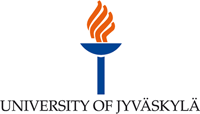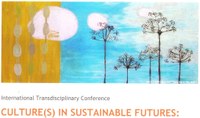Working Groups
Three Working Gropus provide a home for the scientific work conducted in the Action:
Working Group 1: Theories and concepts
Chair:Dr. Inger Birkeland, Telemark University College, Norway. Email: inger.birkeland-at-hit.no
Vice-Chair: Dr. Theopisti Stylianou-Lambert, Cyprus, Email: theopististylianou at gmail.com
Culture is one of the two or three most complex words in the English language. It has been employed in a variety of senses in everyday use, but without a tangible or generally agreed core meaning. As a scientific concept, it is essentially multidisciplinary and complex. The key question is how to deal with the concept of culture in a manner that is analytically and operationally useful in the context of sustainable development. Some uses of culture are narrow, others are all-inclusive, where culture is indeed everything and becomes analytically empty and operationally meaningless. This problem lies at the heart of the following sub-task: how to establish appropriate frames for the concept of culture in the context of sustainable development. A functional relationship between culture and other dimensions of sustainable development should be found. Therefore the aim of the Working Group 1 is to conceptualise and operationalise culture in the context of sustainable development.
WG1 carries out the following activities:
Inventory of distinct approaches to culture, development and sustainability mapping of existing models of culture in various research and development projects
- Comparisons between the various uses and meanings of culture in various contexts and sustainability models;
- Synthesis of different meanings and functions of culture, sustainability and development;
- Proposals for framing culture in sustainable development
- Identification of research needs for the future
Working Group 2: Policies
Chair: Dr. Nancy Duxbury, duxbury at ces.uc.pt
Vice chair: Dr. Jenny Atmanagara, jenny.atmanagara@si.uni-stuttgart.de
Sustainability is included in all policies at the global, EU, national, regional and local level, and it has found its way into all sectoral policies, at least as a word. Nevertheless, the cultural dimension is not necessarily always represented in these policies. Within Europe, there are however policy practices where the cultural dimension is successfully included. Such work often takes place outside the research arena, i.e. in NGOs or other groups and organisations, local initiatives that cross boundaries, like arts-based or place-based initiatives. Yet, this work is not necessarily very well recognised by the researcher. For that reason, the exchange of knowledge and experience and mutual learning among practitioners and researchers, cutting across the scientific and policy-sector borders, should be encouraged. The aim of Working group 2 is to examine best practices and policies for culturally sustainable development.
The WG 2 carries out the following activities:
- Inventory of policy practices that promote a cultural approach in national, regional and local development with cooperation among practitioners (NGOs, civil servants, politicians);
- Comparison of these practices (why they were successful, how they dealt with culture);
- Analysis and synthesis of the practices;
- Descriptions of best practices that take culture into consideration;
- Identification of future research needs;
Working Group 3: Indicators and assessments
Chair: Dr. Beba Kuka bebakuka at gmail.com
Vice chair: Dr. Elena Battagli e.battaglini at ires.it
The WG 3. carries out the following activities:
-
Inventory of sets of cultural indicators (local, national, international);
-
Comparison, classification and evaluation of the current sets of indicators;
-
Exploration of new assessment methodologies for cultural sustainability;
-
Design of new frameworks for assessing cultural sustainability;
-
Identification of future research needs.



